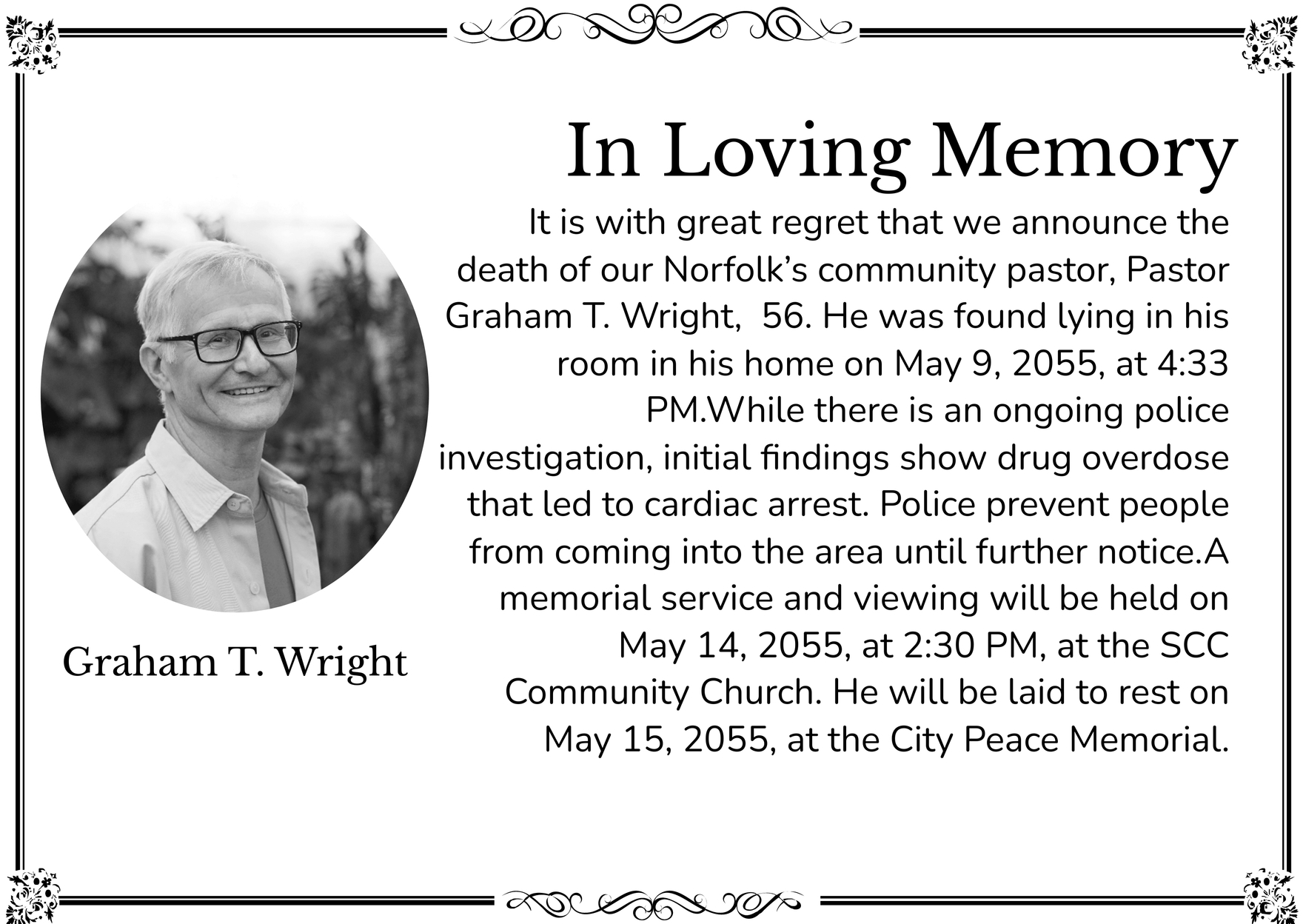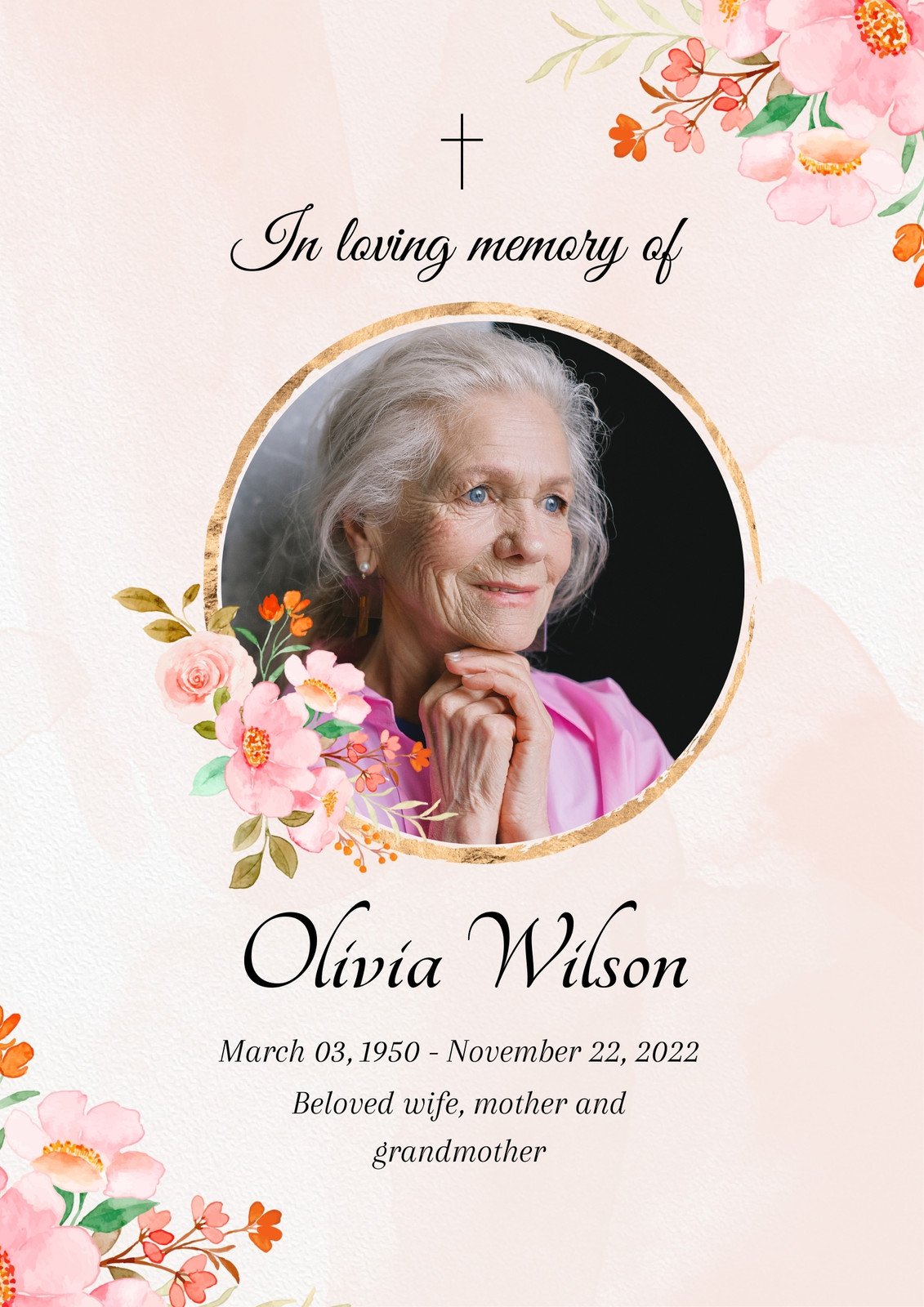Let’s talk about something that’s as inevitable as death itself—obituaries. Yep, you heard me right. Obituaries are more than just a few lines in the paper; they’re a way to honor someone’s life and legacy. Whether it’s a loved one or a public figure, obituaries serve as a bridge between the past and the present, reminding us of the lives we’ve touched and those who’ve touched ours. So, let’s dive deep into this topic and uncover what makes obituaries so significant.
Now, I know what you’re thinking—why would anyone want to read about obituaries? Well, here’s the deal: obituaries aren’t just about death. They’re about celebrating life, preserving memories, and keeping the spirit of someone alive even after they’ve passed on. Think about it—it’s like a final chapter in someone’s story, and that’s pretty powerful stuff.
From ancient civilizations to modern-day digital platforms, obituaries have evolved, but their purpose remains the same. They’re a way to remember, to reflect, and to say goodbye. And in today’s fast-paced world, understanding the role of obituaries can help us appreciate the lives of those we’ve lost even more. So, buckle up because we’re about to explore the world of obituaries like never before.
Read also:Unlock The Secrets Of Lasd Inmate Search Your Ultimate Guide
What Exactly Is an Obituary?
At its core, an obituary is a written notice announcing someone’s death. But it’s so much more than that. It’s a tribute, a summary of a person’s life, and sometimes, a glimpse into their personality. Obituaries can be short and sweet or long and detailed, depending on the family’s wishes and the person’s impact on the world.
Traditionally, obituaries were published in newspapers, but with the rise of the internet, they’ve moved online too. This shift has made it easier for people to access and share these important pieces of information. And let’s not forget, obituaries aren’t just for the deceased—they’re also for the living, helping them process grief and celebrate the life of someone they cared about.
Key Elements of an Obituary
So, what goes into writing an obituary? Here’s a quick rundown:
- Name: The full name of the deceased, including any nicknames if relevant.
- Date and Place of Death: When and where the person passed away.
- Biographical Information: Details about their life, such as where they were born, their education, career, and any notable achievements.
- Family Members: A list of surviving family members, including spouses, children, and sometimes even pets!
- Funeral Arrangements: Details about the memorial service or any other events planned in honor of the deceased.
These elements come together to paint a picture of the person’s life, making the obituary more than just a death announcement.
Why Are Obituaries Important?
Obituaries play a crucial role in our society. They’re not just a formality; they’re a way to honor the deceased and provide closure for the living. For families, obituaries serve as a public acknowledgment of their loss, allowing friends and acquaintances to offer condolences and support.
Moreover, obituaries can be a source of inspiration. They highlight the achievements and contributions of the deceased, reminding us of the impact one person can have on the world. Whether it’s a local hero or a global icon, an obituary can inspire others to live their lives to the fullest.
Read also:Hdhub Movies 4u Your Ultimate Destination For Entertainment
The Evolution of Obituaries
Obituaries have come a long way since their inception. In ancient times, they were often carved into stone or written on scrolls, serving as a permanent record of someone’s life. Fast forward to today, and you’ll find obituaries on social media platforms, websites, and even apps.
This evolution has made it easier for people to share and access obituaries, but it’s also raised questions about privacy and accuracy. With so much information available online, it’s important to ensure that obituaries are factual and respectful.
Writing an Obituary: Tips and Tricks
Writing an obituary can be a daunting task, but it doesn’t have to be. Here are a few tips to help you craft a meaningful and respectful tribute:
- Start with the Basics: Begin with the person’s name, date of death, and place of death. These are the essential details that everyone needs to know.
- Include Biographical Information: Share details about the person’s life, such as their education, career, and hobbies. This helps paint a picture of who they were.
- Mention Family Members: List the surviving family members and any predeceased relatives. This shows the connections the person had in life.
- Add Personal Touches: If the family wishes, include a favorite quote, memory, or story about the deceased. This can make the obituary more personal and heartfelt.
Remember, the goal is to honor the person’s life, so take your time and make sure the obituary reflects who they were.
The Role of Obituaries in Modern Society
In today’s world, obituaries have taken on new meanings. They’re not just about announcing someone’s death; they’re about celebrating their life. Social media platforms like Facebook and Twitter have made it easier for people to share obituaries and pay tribute to the deceased.
But with this shift comes responsibility. It’s important to ensure that obituaries are accurate and respectful, especially when they’re shared online. Misinformation can spread quickly, so it’s crucial to verify facts before posting anything.
Obituaries and Mental Health
Obituaries can also play a role in mental health. For many people, reading or writing an obituary can be a cathartic experience, helping them process their grief. It provides a sense of closure and allows them to reflect on the life of the person they’ve lost.
Additionally, obituaries can serve as a reminder of our own mortality, encouraging us to live our lives to the fullest. They remind us that life is precious and that every moment counts.
Famous Obituaries Throughout History
Throughout history, some obituaries have become famous in their own right. These obituaries often highlight the life and achievements of influential figures, leaving a lasting impact on society. Let’s take a look at a few examples:
- Albert Einstein: His obituary celebrated his groundbreaking contributions to science, including the theory of relativity.
- Marilyn Monroe: Her obituary captured the essence of her iconic career and tragic life.
- Winston Churchill: His obituary honored his leadership during World War II and his lasting legacy as a statesman.
These obituaries not only celebrated the lives of these individuals but also provided insight into the times in which they lived.
How Obituaries Reflect Cultural Values
Obituaries can also reflect the cultural values of the time. For example, in the past, obituaries often focused on a person’s achievements and contributions to society. Today, they’re more likely to include personal details and stories, highlighting the individual’s unique qualities.
This shift reflects a broader change in how we view death and mourning. We’ve moved from a more formal, distant approach to a more personal, intimate one. And that’s a good thing because it allows us to connect with the deceased on a deeper level.
Challenges in Writing Obituaries
While obituaries are important, they can also be challenging to write. One of the biggest challenges is striking the right tone. You want to honor the person’s life without being overly sentimental or maudlin. It’s a delicate balance that requires sensitivity and tact.
Another challenge is ensuring accuracy. With so much information available, it’s easy to make mistakes. That’s why it’s important to double-check facts and verify sources before publishing an obituary.
Common Mistakes to Avoid
Here are a few common mistakes to avoid when writing an obituary:
- Incorrect Information: Double-check names, dates, and other details to ensure accuracy.
- Overly Formal Language: While obituaries should be respectful, they don’t need to be overly formal. Use language that reflects the person’s personality.
- Ignoring Personal Details: Don’t forget to include personal touches that make the obituary more meaningful.
By avoiding these mistakes, you can create an obituary that truly honors the person’s life.
The Future of Obituaries
As technology continues to evolve, so will obituaries. We’re already seeing the rise of digital obituaries, which allow people to share photos, videos, and stories about the deceased. This trend is likely to continue, making obituaries more interactive and engaging.
But no matter how they change, obituaries will always serve the same purpose: to honor the lives of those we’ve lost and provide closure for the living. And that’s something worth celebrating.
How Technology is Changing the Obituary Landscape
Technology is transforming the way we create and share obituaries. From online memorials to virtual funerals, the possibilities are endless. These innovations are making it easier for people to connect and grieve together, even when they’re miles apart.
However, with these advancements comes the responsibility to ensure that obituaries remain respectful and accurate. As we embrace new technologies, we must also uphold the values and traditions that make obituaries so meaningful.
Conclusion: Celebrating Life Through Obituaries
In conclusion, obituaries are more than just a death announcement. They’re a celebration of life, a tribute to someone’s legacy, and a way to honor their memory. Whether it’s a loved one or a public figure, obituaries play an important role in our society, helping us process grief and reflect on the lives of those we’ve lost.
So, the next time you read an obituary, take a moment to appreciate the life it’s commemorating. And if you ever find yourself writing one, remember to focus on the person’s unique qualities and contributions. After all, every life is worth celebrating.
And hey, if you’ve enjoyed this article, why not leave a comment or share it with a friend? Let’s keep the conversation going and continue to celebrate the lives of those who’ve touched our hearts.
Table of Contents


